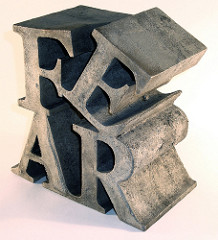Seniors face tremendous financial pressure trying to make ends meet living on a fixed income. They often must revert to credit cards to survive!
Unfortunately, the balances and minimum payments continue to increase to a point where there is just not enough income from their fixed income or modest retirement.
What can they do?

I've been helping seniors deal with too much credit card and other unsecured debts for a long, long time.
Most of my clients found themselves in real financial trouble and had no idea of how to solve the problem.
If you search the internet, most likely you'll find numerous ads from bankruptcy attorneys, offers for loan consolidation and/or poor advice to transfer balances from one card to another.
There are better solutions!
But first....
Debt Collectors and even Law Firms that specialize in debt collection will try to intimidate or scare seniors into making poor decisions!
The Fair Debt Collection Practices Act spells out what a collector legally can and cannot do.
Basically, a debt collector cannot:
- Make threats of garnishing retirement benefits or bank accounts
- Use inappropriate language or baseless claims
- Attempt to collect on a debt owed by a deceased spouse (unless you and the deceased spouse where co-signers on the debt or card)
- Attempt to collect on a debt that has gone beyond the Statute of Limitations (these vary state by state)
- Make calls to you before 8am or after 9pm in your time zone
- Threaten with legal action if no legal action is taken
- Make excessive calls though out the day!
- Make calls to you if you are on the Do Not Call registry (only the original creditor has the right to call you)
- Continue to call even after you have sent a Cease and Desist letter
OK, we've detailed some of the practices a collector CANNOT do, let's see what they CAN DO and what options you have...
Debt Management Programs
(called Consumer Credit Counseling)
A Debt Management Program is for those who are making the minimum payments, but realize the balances are barely going down !
If you qualify, you should see a reduction in interest rates and possibly have over-the-limit or other fees dismissed.
You will be making one monthly payment (roughly equal to the total you are currently making) to a Debt Management Company.
People in a Debt Management Program are usually out of debt in 4-5 years.
If you currently cannot keep up with the required minimum payments, then most likely a Debt Management Program will not be an option for you.
Debt Settlement Program
Creditors, collectors and Debt purchasing companies will usually accept a reasonable settlement offer for less than the full balance due.
Unfortunately, in the past, there were numerous so called Debt Settlement Companies who were fraudulent and unscrupulous!
Recent laws in most states have have helped run these types of companies out of business, and yet a few remain.
Before you consider seeking the help of a Debt Settlement Company, you should do your due diligence and check them out!
A representative will discuss your particular situation and determine a monthly deposit that you can afford.
This monthly withdrawal from your account is deposited and held by a FDIC bank (Wells Fargo, US Bank, etc.)
As the funds in your account increase, settlement negotiations begin.
Once the settlement agreement is negotiated (must be in writing), a lump sum or series of payments are make according to the agreement.
Once the agreement has been satisfied, a letter is sent stating something like "the account has a $0 balance and is settled in full".
This will also be reflected on your credit report and over time, your credit score should improve.
If you just cannot keep up with your minimum payments or even cannot afford a Debt Settlement Program, then you might have to consider filing for...
BANKRUPTCY
Although "bankruptcy" is a scarry and often misunderstood legal option, in some cases, it is the best option.
You should consult several attorneys who specialize in bankruptcy before making a decision.
A qualified bankruptcy attorney should not charge for the initial consultation.
Finally...
Being a Senior Citizen and trying to live on a fixed income is very stressful.
If you could use some advice or guidance, let us know.










 Someone has said that the word FEAR really stands for:
Someone has said that the word FEAR really stands for:


 First, some VERY IMPORTANT POINTS...
First, some VERY IMPORTANT POINTS...


